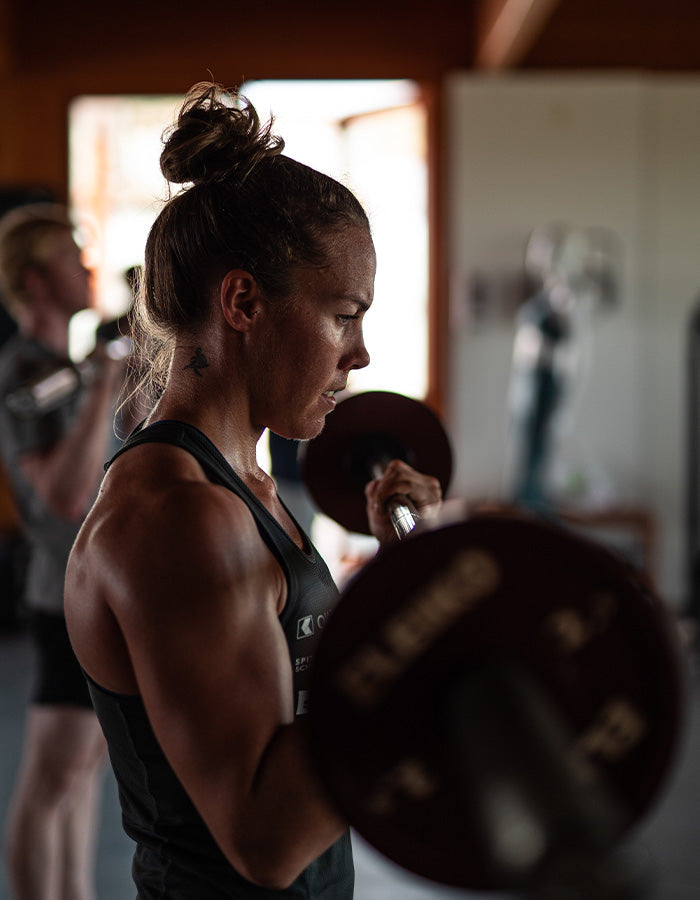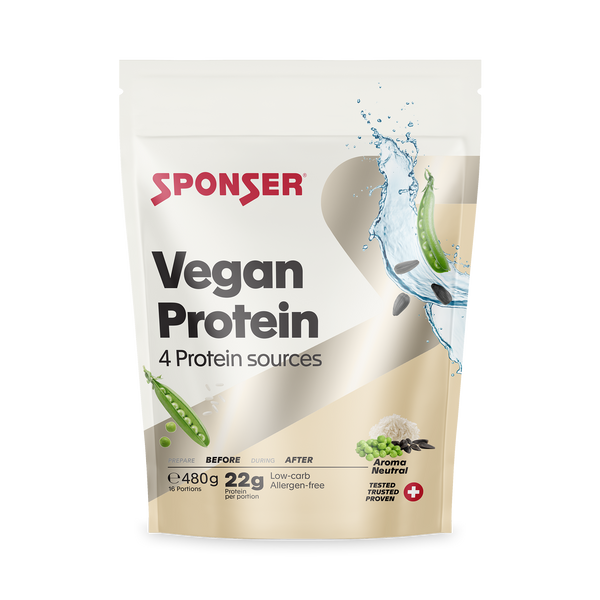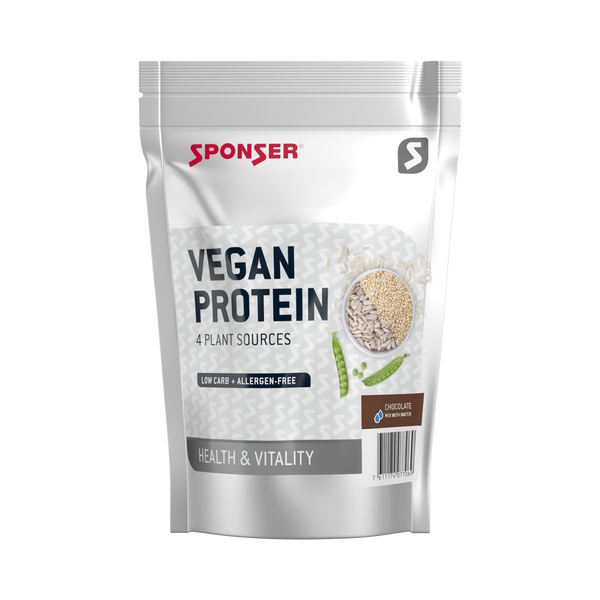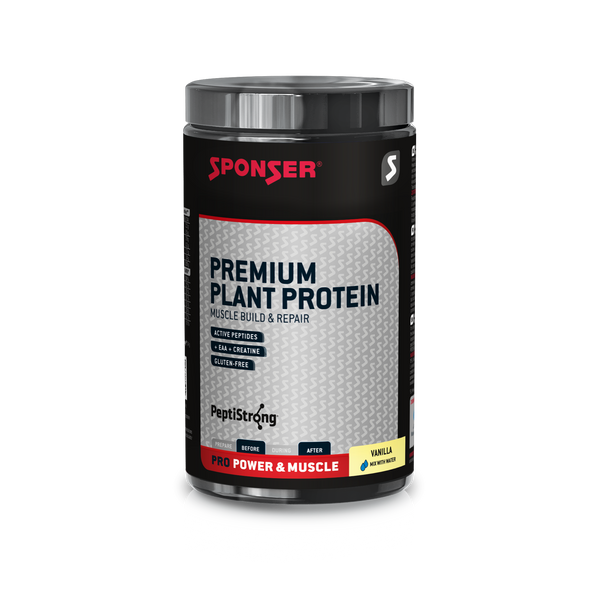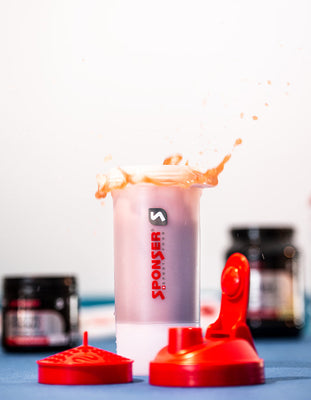
Photo credit: Vlada Karpovich/Pexels
Premium Plant Protein to combat potential protein deficiency
In a recently published study (1), a team of researchers from the Dutch HAN University of Applied Sciences Nijmegen investigated the question of how a switch to a plant-based diet affects protein availability and thus sufficient protein intake in older people. Over 600 adults aged 65-79 took part in the study and recorded their eating behaviour in dietary questionnaires.
Protein availability in flexitarian, pescetarian, vegetarian and vegan diets
The researchers wanted to assess the extent to which a flexitarian (mixed diet), pescetarian (= vegetarian with fish), vegetarian or vegan diet influences protein availability. Protein availability is an indication of how well the body can convert the ingested protein into endogenous protein. In order to measure it, the scientists not only looked at the total amount of protein consumed, as was often the case in previous studies (2), but also orientated themselves on the qualitative availability of the protein consumed.
Study warns against insufficient protein intake
The study showed that the higher the proportion of plant-based protein in the diet, the lower the protein quality and quantity. Due to the lower protein quality, the vegan diet led to significantly reduced protein availability - around 50% less than a carnivorous diet - which meant that a large proportion (83%) of older consumers (1) did not come close to meeting their daily recommended protein requirements. In contrast, a flexitarian, pescatarian or vegetarian diet with a proportion of up to 60% plant protein did not show insufficient protein intake in older adults.
Lessons learnt from the study
When comparing different diets, it is important to consider not only the quantitative aspect of total protein intake, but also the qualitative availability of protein. The authors of the study point out that a vegan diet with high protein quality and sufficient protein quantity is possible if you endeavour to find adequate combinations of protein sources . They mention that people who follow a vegan diet usually have in-depth nutritional knowledge (3) and are well informed about which supplements support a vegan diet.
Vegan protein from SPONSER with the highest protein quality
Premium Plant Protein: Game changer in vegan sports nutrition
The new vegan protein powder blend from SPONSER is a unique combination of innovative plant-based protein sources for a high-quality amino acid profile. While conventional vegan protein supplements often only combine 1-2 plant proteins, our Premium Plant Protein contains a versatile combination, including the innovative PeptiStrong. This is a protein hydrolysate from fava beans, whose bioactive peptides were discovered thanks to AI and recognised as highly effective for muscle protein synthesis. The product has also been fortified with essential amino acids, vitamin D, minerals and creatine. Protein supports the development and maintenance of muscle mass. Creatine, calcium, zinc and vitamin D are particularly important nutrients in a vegan diet. Premium Plant Protein offers high-quality training support for strength and endurance athletes as well as for less athletic vegans and seniors in general, for whom an optimised amino acid profile is particularly relevant.
PeptiStrong for muscle strength and growth
A clinical study was able to show that PeptiStrong can significantly increase muscle strength (after immobilisation) at a dosage of just 2.4 g daily and stimulate muscle protein synthesis to the same extent as milk protein and even increase strength performance more effectively (4). This makes it a strong alternative and add-on to conventional animal-derived protein sources.
PeptiStrong for faster regeneration
PeptiStrong also helps to reduce muscle soreness and accelerate recovery after intense training or injury. This is confirmed by clinical markers of muscle damage and recovery as well as measurable variables such as significantly improved strength performance 48 h and 72 h after hard exercise (3).
PeptiStrong for a vegan, sustainable and ethical diet
PeptiStrong is suitable for anyone following a plant-based diet. It offers a novel, scientifically tested and - as part of a sufficiently protein-rich diet - highly effective plant-based alternative to animal-derived protein supplements.
Vegan Protein: basic supplement for vegans
Combines protein from pea, rice, yeast, and sunflower seeds to create a high-quality vegan protein powder that provides a full spectrum of amino acids and more than 20 g of protein per serving. The innovative protein blend from purely plant-based sources ensures a balanced amino acid profile. Protein supports the development and maintenance of muscle mass. Because plant-based protein sources are naturally rich in dietary fibre, the combination of protein and dietary fibre makes Vegan Protein a valuable basic supplement as part of a low-carb diet.
Literature
1)
Borkent JW et al. (2024): A vegan dietary pattern is associated with high prevalence of inadequate protein intake in older adults; a simulation study. J Nutr Health Aging. 2024 Oct;28(10):100361.
2)
Hoffman SR et al. (2013): Differences between health and ethical vegetarians. Strength of conviction, nutrition knowledge, dietary restriction, and duration of adherence. Appetite. 2013 Jun;65:139-44.
3)
Kerr A et al. (2023): Improved Strength Recovery and Reduced Fatigue with Suppressed Plasma Myostatin Following Supplementation of a Vicia faba Hydrolysate, in a Healthy Male Population. Nutrients. 2023 Feb 16;15(4):986.
4)
Weijzen MEG et al. (2023): Vicia faba Peptide Network Supplementation Does Not Differ From Milk Protein in Modulating Changes in Muscle Size During Short-Term Immobilization and Subsequent Remobilization, but Increases Muscle Protein Synthesis Rates During Remobilization in Healthy Young Men. J Nutr. 2023 Jun;153(6):1718-1729.


